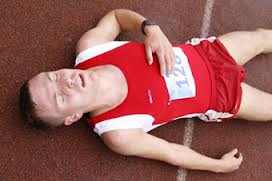Physical activity and good nutrition are the keys for a healthy immune system. Dr. David Nieman, PhD, from the Appalachian State University of Boone, N.C. has found that exercise and nutrition play a strong role in boosting immunity. His past research showed that women who walked briskly for 30 to 45 minutes five days for 12 to 15 weeks had colds half as often as inactive women. This is true even for the aging population, where immunity tends to decline; some research has shown that fit elderly people have better-preserved immune systems.
It is tempting to conclude, that more exercise would lead to even better benefits, but the research results are quite different. Exercising for too long (beyond 90 minutes) appears to cause a steep drop in immune function that can last up to 24 hours. In the 1987 Los Angeles Marathon, Dr. Nieman surveyed 2,311 runners and found those who raced were six times more likely to get sick afterward compared with those who dropped out of the race for non-medical reasons. Runners who trained more than 96 km per week during the two months before a race doubled their chances for sickness compared with those who trained less than 36 km per week.
In lab tests on marathon runners who ran on a treadmill for 90 minutes to 3 hours at 80% aerobic capacity, the level of immune cells had decreased (neutrophils, monocytes, natural killer cells, T cells and B cells). All these players in the immune system leave the blood and concentrate on the effort to do repairs and maintenance on the muscles. As a result the front line soldiers are unavailable for defense when viruses are present.
The best strategies for active as well as not-so-active individuals remain similar.
-Minimize life stresses-mental and emotional.
-Avoid over training and chronic fatigue.
-Curb exercise if you have a fever or systemic infection.
-Eat a well-balanced diet with adequate energy.
More about fitness: http://nethealthbook.com/health-nutrition-and-fitness/fitness/
Reference: The Medical Post, October 11, 2005, page 19
Last edited October 29, 2014






